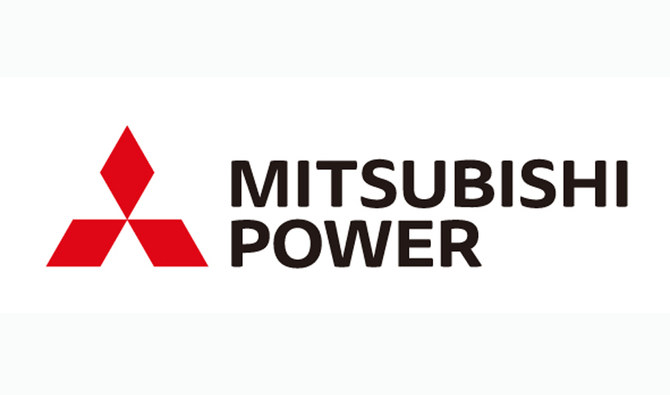
COVID-19 and the Kingdom’s Power Sector
Attributed to Khalid Salem, CEO and President – Mitsubishi Power MENA
The unfolding effect of the COVID-19 outbreak is deeply impacting livelihoods and businesses across the world, and of course in the Middle East. The impact is felt across all industries, and the Power sector is not exempt. While it is difficult to speculate the course of evolution and hopeful recovery out of the declared pandemic, reflecting on some of the possible effects on the MENA power sector can shed light on the business patterns and decisions that may be involved in the short and long-term.
Mitsubishi Power; a global power technology leader with worldwide operations and an expansive footprint, is following all necessary government guidelines in the region and in the Kingdom of Saudi Arabia (KSA), to ensure widespread operational safety, and in close coordination with customers, therefore driving zero COVID-19 incidents. As part of the process, all Mitsubishi Power employees are using high industry-standard safety gear while following protocols of social distancing as they run day-to-day operations.
The human and economic impacts of this pandemic are undeniably intertwined and have manifested in a multitude of ways. The reduction in workforce availability and productivity, either due to illness, or to enforced or advised social distancing measures, spurs a slowdown of business activity and mobility, and a softening of global energy demand.
In the short-term, business activity softness elicits a drop in energy and power consumption, at least from business sectors, if not so much from residential, as school shut-downs and
work-from-home practices partly shifts business power demand to the residential sector.
Potential slack in power demand may be short-lived, in which case the sector would have to adjust for a limited period of time to lower load factors. The onset of the warm season will mitigate this drop. Power producers will have more choices in terms of which power assets to capitalize upon. Lower performance assets might be idled in favor of large-size efficient gas turbines, helping achieve more generation cost reductions.
The switch-off of lower performance turbines, renewables, especially during the day, would constitute a bigger share of power generated, but at the same time, more load balancing would be required by gas turbines at night. Agile, highly reliable, and operationally flexible advanced gas turbine assets are more critical to overall grid stability and power output normalization.
The increased usage of highly digitalized grids, leveraging data analytics and automation, will be best positioned to capitalize on efficiencies and extract maximum value through dynamically managing their power assets through a holistic approach.
In the medium-term, should business activity and power demand remain subdued into Q3 and Q4 of 2020, both project execution segment and the power service market may experience some effects. For the power services segment, as portions of the installed fleet in many countries, especially those with power surpluses, like the UAE, Egypt, KSA, and Jordan, are less utilized, hence, scheduled service events that would have otherwise been due would be pushed back in time. Also, for maintenance events that are triggered, the execution excellence of such work will be tested. Additionally, Mitsubishi Power’s remote monitoring and analytics function allows easy monitoring of the operating status of various equipment without concern for communications speed from a variety of locations, such as another building inside a plant, a facility outside a plant, or from an overseas site to help operators that may have less staff available.
Service companies with strong and permanent local and regional teams, local workshops, and regionalized supply chains, will be better positioned to fulfill contractual service obligations. In KSA, Mitsubishi Power continues to provide ongoing contractual power solutions for partners such as Aramco, while running ground operations at their workshops in Dammam by following all necessary safety guidelines and procures. Mitsubishi Power has also revisited its masterplan to execute solutions based on Aramco’s plan and schedule.
In the long-term, should the economic slowdown enter a protracted phase into 2021, a myriad of consequences becomes possible. Tighter fiscal budgets and lower power demand projections can cause power capacity expansion plans to be revisited, and only the most crucial and economical projects will be sanctioned. To strengthen business continuity and planning in
Saudi Arabia, Mitsubishi Power’s local engineering force and technical advisers have been accelerated with further support and as a result, no onsite work has been suspended so far. Mitsubishi Power aims to continue providing power solutions to its customers during these challenging times by following a carefully planned strategy and approach.
Other long-term effects may include a potential scale back or growth rate slowdown of renewables, paired with a pick-up in activity for air quality control systems, that would be required to render gas power plants cleaner or greener from an environmental compliance and green power agenda perspective. Advanced emissions control systems, with industry-leading performances and competitive economics can increase the techno-commercial viability of gas plants over other power generation options.
Given the extent to which the COVID-19 situation is fluid, and the complexity of the cause-effect sequences that might be triggered, especially over the long run, a constant re-evaluation of events, drivers, and risks is required. Mitsubishi Power has been dynamic since the beginning of the pandemic, helping public and private power generation stakeholders in KSA and the wider MENA region navigate the potential short-term challenges, while adjusting and deploying long-term strategies in line with their social, environmental, and commercial priorities.


























